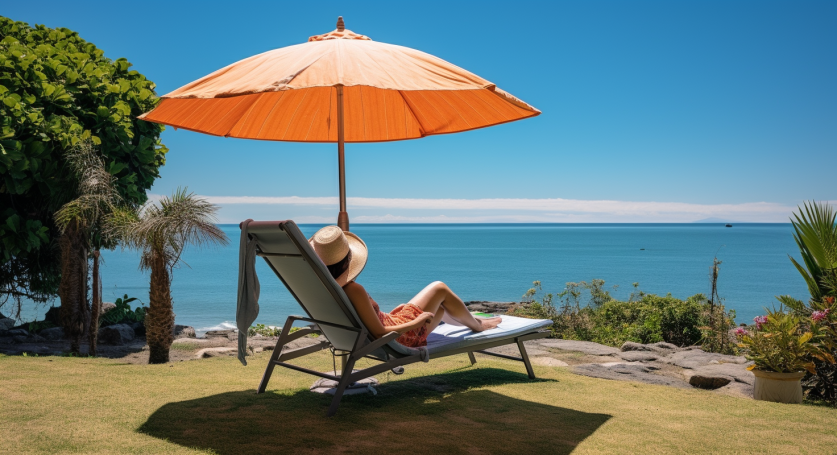Table of Contents
Key Takeaways
- Airbnb is thriving in Kenya’s vibrant tourism scene, offering entrepreneurs a promising opportunity.
- Kenya’s diverse attractions and cultural experiences attract travelers, making it an appealing destination.
- Key steps include legal compliance, property preparation, competitive pricing, exceptional guest experiences, and prioritizing safety.
- Staying updated on tax regulations and evolving trends is crucial for Airbnb hosts in Kenya to navigate financial responsibilities effectively.
In recent years, the sharing economy has transformed the way people travel and experience new destinations. Airbnb, the global online platform that connects travelers with unique accommodation options, has gained significant traction worldwide.
Kenya, with its stunning landscapes, vibrant culture, and growing tourism industry, presents a golden opportunity for entrepreneurs to tap into the Airbnb market. If you’re considering starting an Airbnb business in Kenya, this comprehensive guide will navigate you through the process and shed light on key considerations for success.
The Airbnb Boom in Kenya

Kenya’s diverse attractions, from the bustling city of Nairobi to the picturesque coastal towns and wildlife-rich savannas, make it an alluring destination for both international and domestic travelers. The increasing popularity of Airbnb in Kenya can be attributed to its potential to offer unique, personalized experiences beyond the confines of traditional hotels.
As an Airbnb host, you can provide guests with an authentic taste of Kenyan life and culture, whether it’s a stay in a beachfront villa in Mombasa or a cozy cottage overlooking the Maasai Mara.
READ ALSO: A Comprehensive Guide to Investing in Short-Term Rentals
Essential Documentation for Operating an Airbnb Business in Kenya
- Proof of Premises Insurance Coverage: It’s vital to provide evidence of insurance coverage for your property. This ensures protection against unforeseen events and liabilities, giving both you and your guests peace of mind during their stay.
- Recent Health Clearance Certificate: A copy of the current health clearance certificate, issued within the last three months, is required. This certificate affirms that your property meets health and safety standards, ensuring a comfortable and safe environment for guests.
- Food Handlers’ Medical Certificate: If you provide food-related services, ensure you have the medical certificates of your food handlers. This certification underscores your commitment to maintaining hygienic and quality dining experiences for your guests.
- NEMA ‘No Objection’ Letter: Obtain a ‘no objection’ letter from the National Environment Management Authority (NEMA). This demonstrates compliance with environmental regulations and showcases your commitment to sustainable practices.
- Environmental Compliance Documents: Depending on your property’s status, either an Environmental Impact Assessment (EIA) for new facilities or an environmental audit for existing facilities is necessary. These documents emphasize your dedication to maintaining eco-friendly operations.
- Tourism or Space Development Plan Compliance: Align your business with local tourism or space development plans. This illustrates your integration into the community’s growth and development vision.
- Lease Agreement or Deed of Conveyance: Keep a copy of your property’s lease agreement or deed of conveyance on hand. This confirms your legal entitlement to operate the business on the premises.
- Work/Entry Permits for Non-Kenyans: If non-Kenyans are involved in your business, ensure their work or entry permits are in order. Alongside this, maintain copies of testimonials for non-resident directors, demonstrating your adherence to legal requirements.
- Company Registration Certificate: For new applicants, provide a certificate of registration for your company. This validates your business’s legal existence and standing within the industry.
- Memorandum and Articles of Association: Similarly, new applicants should furnish the memorandum and articles of association. This outlines your business’s structure, objectives, and operational framework.
By having these crucial documents at hand, you not only comply with regulatory requirements but also foster a trustworthy and transparent environment for your Airbnb business in Kenya.
How to Register Property for Airbnb in Kenya
To list your property on Airbnb in Kenya, the registration process is straightforward. Begin by creating an account on the platform, providing your email and home address. Once your account is set up, you can proceed to list your property. This user-friendly process makes getting started with Airbnb a breeze.
How to Make Money on Airbnb
Achieving financial success on Airbnb hinges on mastering the art of pricing. However, this task is not static; it requires continuous adjustment until the optimal formula is discovered. Here are key factors to consider while determining your rates:
- Airbnb’s platform charges a commission of approximately three percent of the guest’s total payment. For instance, if your listing is priced at Sh10,000 per night, Airbnb will automatically deduct around Sh300.
- Leverage Airbnb’s valuable pricing tools, which recommend competitive rates based on similar listings’ performance. This tool detects fluctuations in demand and suggests adjusting prices accordingly. During periods of low activity, the tool advises lowering rates, while during high-demand periods, it offers insights into setting a competitive nightly price.
Is Airbnb Profitable in Kenya?
Undoubtedly, the Airbnb business in Kenya holds significant profit potential. While the influx of international tourists might not be as frequent, there’s a vibrant local tourist market. Many locals seek accommodations for extended stays, often spanning an entire month.

Additionally, some properties are sought after for hosting events and parties. Your profit margin depends on your tailored terms and conditions, allowing you to tap into various revenue streams and capitalize on Kenya’s diverse hospitality landscape.
Step-by-Step Process to Launching Your Airbnb Business
Market Research and Property Selection
Start by researching the Airbnb market in your desired location. Identify popular tourist areas, demand trends, and the types of accommodations that are in demand. Once you have a clear understanding of the market, choose your property wisely.
It could be an extra room in your home, a vacant apartment, or even a unique vacation home. Ensure that the property is well-maintained, comfortable, and aligned with the preferences of your target guests.
Legal and Regulatory Compliance
Before listing your property on Airbnb, familiarize yourself with local regulations, zoning laws, and taxation requirements. Depending on your location, you might need licenses or permits to operate a short-term rental. Ensuring compliance from the outset will prevent legal issues down the road.
Property Preparation
Prepare your property to welcome guests. This involves cleaning, decorating, and equipping the space with the necessary amenities. High-quality photos are essential for attracting potential guests, so invest in professional photography to showcase your property in the best light.
Pricing and Listing Creation
Research similar listings in your area to determine competitive pricing. Airbnb’s dynamic pricing tool can help you adjust rates based on demand and seasonality. Create a compelling listing description that highlights the unique features of your property and its proximity to attractions, amenities, and public transport.
Guest Experience
Providing exceptional guest experiences is key to building a strong reputation on Airbnb. Ensure prompt and friendly communication with potential guests.

Once they arrive, offer a warm welcome and provide information about the local area, recommendations for activities, and clear instructions for using amenities.
Safety and Security
Prioritize the safety and security of your guests. Install working smoke detectors, fire extinguishers, and lock systems. Regularly inspect your property to identify and address any potential hazards.
Hospitality and Reviews
Go the extra mile to make your guests’ stay memorable. Small touches like fresh flowers, welcome baskets, or a personalized note can leave a lasting impression. Encourage guests to leave reviews after their stay, as positive reviews can significantly boost your credibility and attract more bookings.
Do Airbnbs Pay Tax in Kenya?
Previously, Airbnbs in Kenya operated with limited tax involvement. However, since January 2021, the Kenya Revenue Authority enforced a digital service tax, requiring certain online businesses, including some Airbnb hosts registered as limited liability companies, to pay 16 percent VAT for services within Kenya. Airbnb now automatically deducts this VAT, along with its three percent commission. Individual Airbnb owners are also responsible for submitting income tax alongside their personal tax returns.
READ ALSO: Types of Taxation in Kenya for a Real Estate Investor
An intriguing development surfaced in April 2023 when President William Ruto proposed eliminating the digital service tax, as reflected in the proposed Finance Bill 2023. As taxation regulations continue to evolve, it’s essential for Airbnb hosts to stay abreast of changes that could impact their financial responsibilities.



